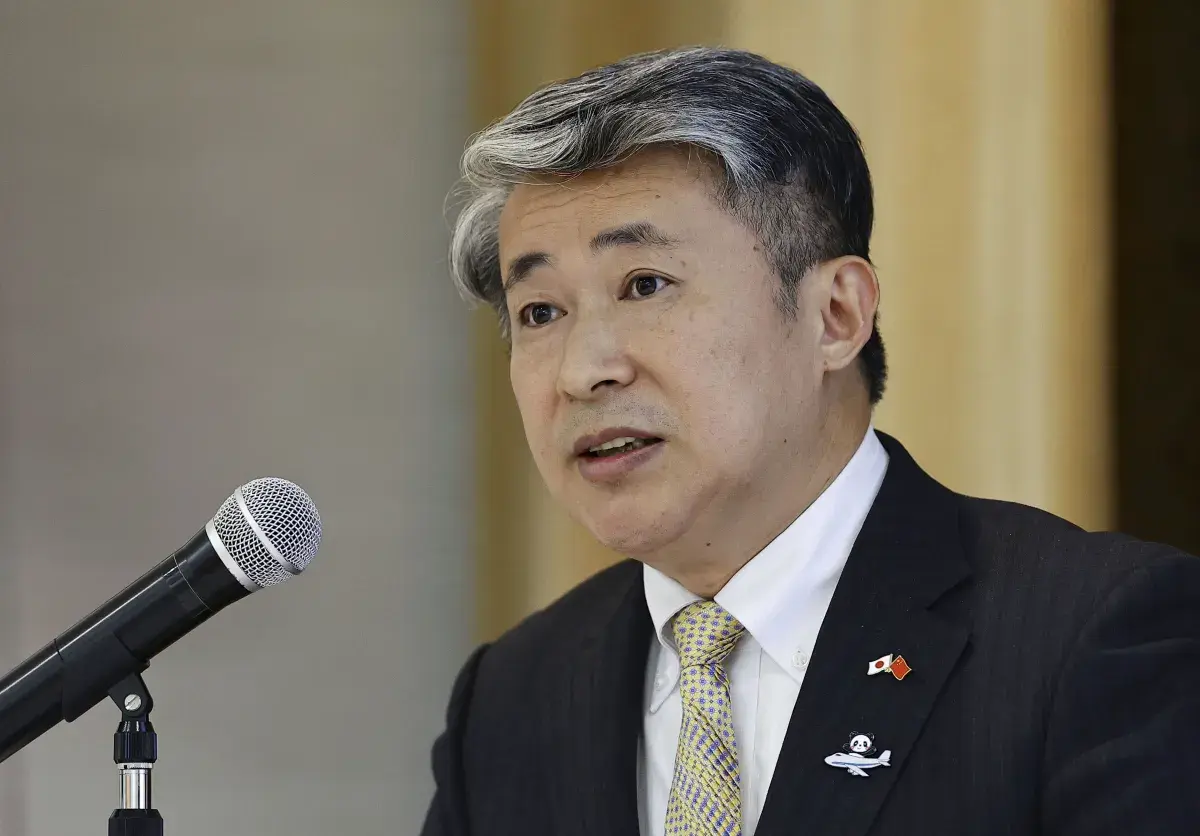
A Chinese diplomat has sparked a diplomatic firestorm in Japan over a statement widely seen as threatening toward Prime Minister Sanae Takaichi, following her recent remarks on Taiwan.
The controversy erupted after Takaichi, who was sworn into office last month, told a parliamentary committee on Friday that a Chinese military blockade of Taiwan, which Beijing claims as its own, would likely create a “survival-threatening situation” for Japan—one that could force Tokyo to respond by deploying its Self-Defense Forces.
Xue Jian, the Chinese consul general in Osaka, fired back on social media platform X in a now-deleted post, which read: “That filthy neck that barged in on its own—I’ve got no choice to cut it off without a moment’s hesitation. Are you prepared for that?”
Why It Matters
China claims sovereignty over Taiwan, although the Chinese Communist Party has never ruled the island and Taipei strongly rejects Beijing’s longstanding claims. Chinese leaders have repeatedly said unification is inevitable and have not ruled out the use of force. In recent years, Beijing has increased pressure on the island’s leadership, including by staging large-scale exercises simulating a blockade.
A major Chinese offensive against Taiwan would disrupt supply chains and significantly strengthen China’s military position relative to nearby Japan—a key U.S. treaty ally—which relies on secure maritime routes for 99 percent of its trade.
Newsweek reached out to the Chinese Consulate General in Osaka by email for comment.
What To Know
Tokyo announced on Monday that it had lodged a formal protest with Beijing over Xue’s remarks. Government spokesperson Minoru Kihara told reporters the post was “extremely inappropriate for a Chinese diplomatic mission head.”
Xue’s comments drew widespread criticism among Japanese netizens as well as lawmakers, with some demanding a public apology or calling for the diplomat to be deemed “persona non grata”—and expelled from the country.
In a follow-up post on Sunday, Xue had urged the public to “stop the arbitrary speculation, expansion, and distortion” of his words.
“I would like to reiterate that the root of the problem lies with the Japanese politicians who, disregarding our repeated and emphatic statements of opposition, casually and frequently declare that ‘a Taiwan contingency is a Japan contingency,'” he said, without naming Takaichi. The diplomat added that this claim would “surely constitute” a threat of violence toward China.
Japan is one of the best-armed nations in the world. Its postwar constitution severely limits the scenarios in which it can use military forces, although a reinterpretation of the document in 2015 has since allowed for “collective self-defense,” which is viewed by some analysts as opening the door for its forces to join the United States in defending Taiwan if the conflict were deemed an existential threat to Japan.
Xue has been accused of undiplomatic conduct in the past. His confrontational style has led some to label him one of China‘s “Wolf Warrior” diplomats—a term used for officials known for aggressive rhetoric, based on a popular Chinese action movie franchise of the same name.
In June, Xue drew criticism from George Glass, the U.S. ambassador to Japan, over a post that compared Israel to Nazi Germany. In September, a United Nations independent commission declared that the U.S’s closest ally in the Middle East had been “committed genocide” against Palestinians in Gaza.
What People Are Saying
Hiroshi Yamada, a member of Japan’s upper house, wrote on X: “Declare [Xue] persona non grata and impose immediate expulsion.”
Norihiro Uehata, a Kobe city councilor, wrote in an X post: “How many times has Xue Jian engaged in internal interference, but isn’t this statement by the diplomat representing China tantamount to a declaration of war?”
George Glass, U.S. ambassador to Japan, wrote on X: “The mask slips again. Just a few months ago, [Xue] compared Israel with Nazi Germany. Now, he threatens Prime Minister Takaichi Sanae and the Japanese people.”
Zhai Xiang, an analyst on China-U.S. relations, wrote on X: “To be fair, my understanding is that what he criticized was a position—specifically, the attempt to frame the Taiwan issue as Japan’s ‘military crisis.’ He criticizes a wrong strategy using a comparison, not making personal attacks.”
What Happens Next
It was unclear what action, if any, Japanese authorities would take regarding Xue’s post. Takaichi has called China an “important neighbor” and faces the difficult challenge of balancing relations with China, one of Japan’s top trade partners, with tensions in the Taiwan Strait, on top of a separate territorial dispute in the East China Sea.
Japan’s Defense Ministry, in its annual white paper, called China the country’s “greatest strategic challenge” and warned that the balance of power in the Taiwan Strait was quickly shifting in Beijing’s favor.
Japan has in recent years moved to strengthen its military footing, including by placing anti-ship missiles on its Taiwan-facing Ryukyu islands and announcing it would double defense spending to 2 percent of GDP by 2027.
China has criticized what it described as renewed aggression from Tokyo, making parallels to Imperial Japan’s actions in the lead-up to World War II.
